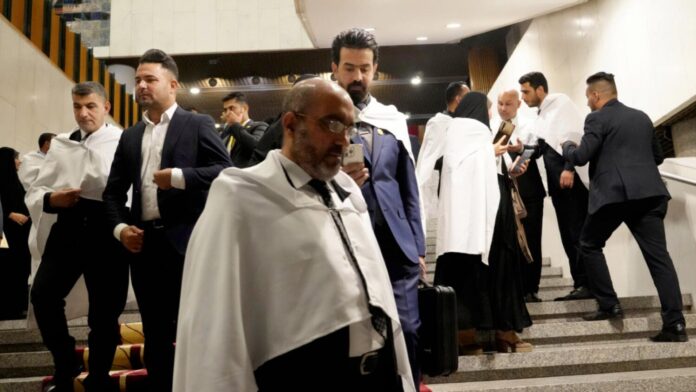Iraqi legislators bombed again on Saturday to choose another president for the country due for an absence of majority in parliament, keeping the nation buried in political loss of motion.
Parliament had given a last rundown of 40 possibility for the post, a to a great extent formal job that by show is held for an individual from Iraq’s Kurdish minority.
The challenge pits Barham Saleh, the officeholder and individual from the Patriotic Union of Kurdistan, against Rebar Ahmed of the Kurdistan Democratic Party (KDP), the PUK’s opponent.
Be that as it may, an absence of a majority – set at 66% of the house’s 329 individuals – held up the decision in favor of the second time since February, developing conflict scarred Iraq’s political vulnerability.
Just 202 legislators appeared for the most recent vote, a parliamentary authority told AFP on state of secrecy, and another meeting must be planned for Wednesday.
The deferment fuels Iraq’s political issues since it is the errand of the president to officially name a head of the state, who should be moved by an outright greater part in parliament.
Iraqi legislative issues were tossed into strife following last October’s overall political decision, which was defaced by record-low turnout, post-vote dangers and viciousness, and a months-in length delay until the eventual outcomes were affirmed.
Extraordinary dealings among political gatherings have since neglected to shape a greater part parliamentary alliance to settle on another top state leader to succeed Mustafa al-Kadhemi.
The biggest political coalition, drove by troublemaker minister Moqtada Sadr, had upheld Zebari for the administration and has now tossed its weight behind Ahmed.
A first vote in parliament on February 7 neglected to appear as it was generally boycotted in the midst of the Zebari legitimate fight.
Saturday’s bombed meeting highlighted the sharp gap in Iraqi legislative issues between Sadr, the overall political decision’s huge victor, and the strong Coordination Framework, which had required a blacklist.
The Coordination Framework incorporates the Fatah Alliance – the political arm of the previous paramilitary gathering Hashed al-Shaabi.
In front of Saturday’s fiasco, political expert Ihsan al-Shammari had said that, regardless of whether the vote had gone on according to plan, the administration would “not be chosen from the first round”.
The up-and-comer who wins the biggest number of votes should get a 66% greater part in the second round of votes in parliament to win the administration.




